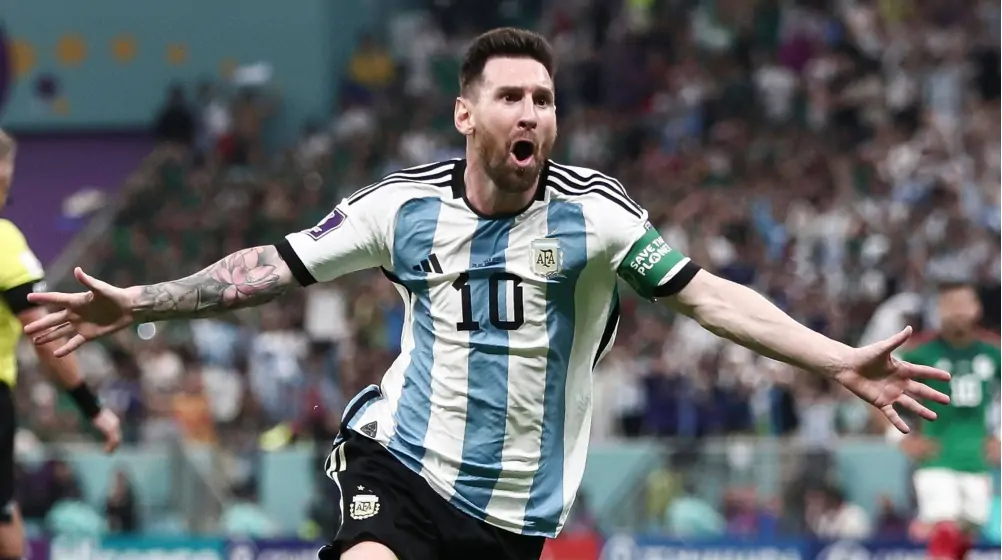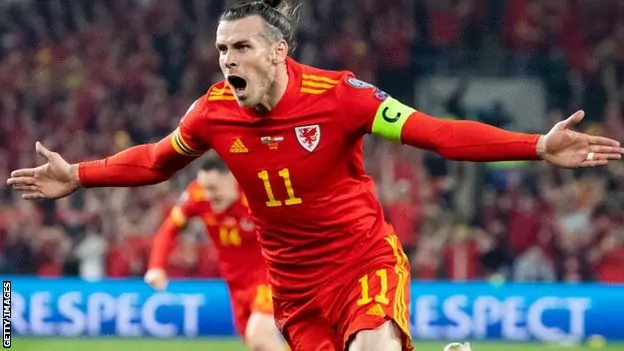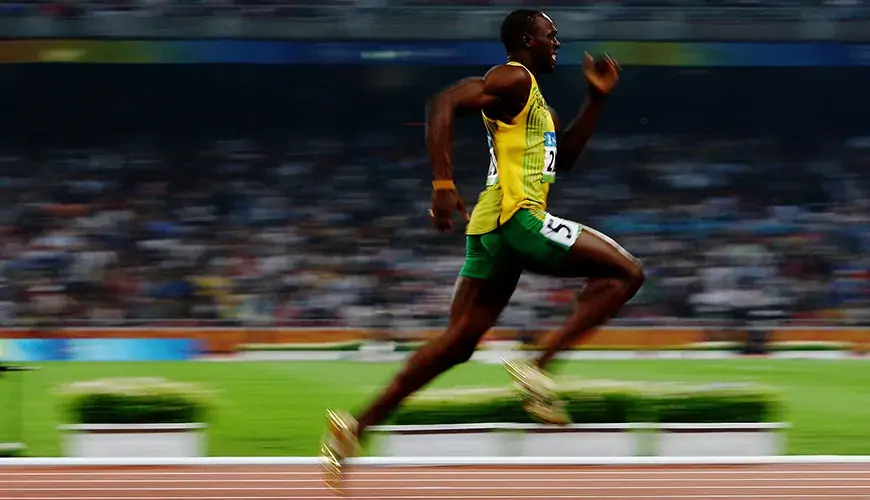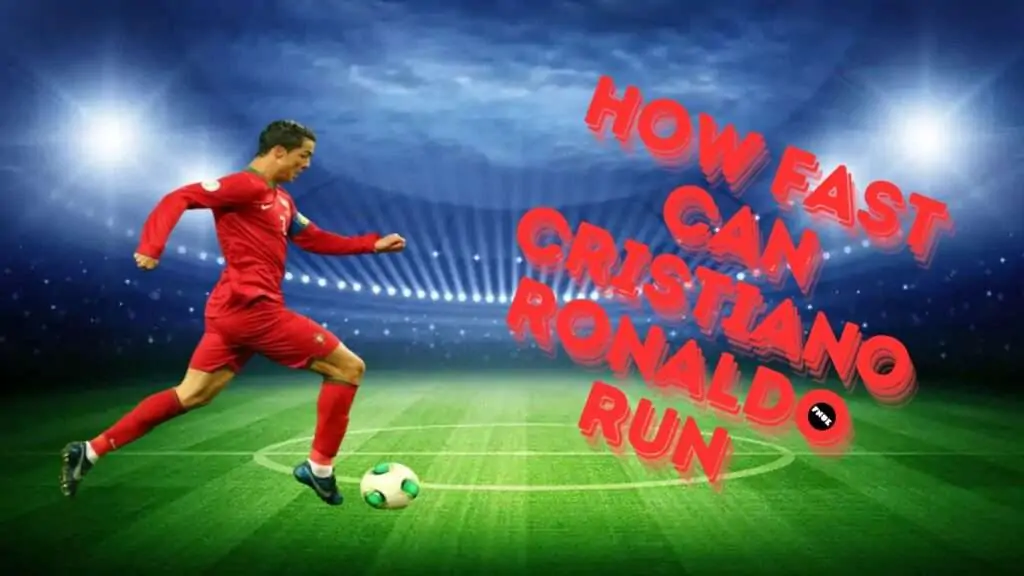Cristiano Ronaldo is one of the top athletes in football, known for his impressive scoring and his insane speed. Ronaldo has, of course, been a phenomenon in terms of body type (as a guy able to continuously push the outer limits of physical capacity), but one area of his on-field speed is particularly under discussion.
This exploration attempts to get an insight as to how fast Cristiano Ronaldo can really run, say a hat-tip to the question everyone wonders in the back of their minds, delving deeper into his sprinting abilities, his top speeds, training information and components that are creating the raw acceleration, the elegance and the factors of the how.
Ronaldo’s Remarkable Speed Statistics and Achievements on the Field
Just looking at Cristiano Ronaldo’s speed stats would impress most people as well as his prolific goal-scoring records.
Ronaldo from a top speed perspective is in the top 10% of sprinting speeds among any player to ever be seen taking part in a professional football match, registering on the scale at an astronomical 33.6 km/h (20.9 mph) as he entered his fittest years, a level to which even more superficially impressive records from other players can only aspire to compare.
The 23-year-old has an utterly electric turn of pace, which sees him run rampant through defenses time and time again on the counter. Still, he had some sensational speed too and in the World Cup 2018, he reached a top speed of 34 km/h (21.1 mph) during a game against Spain.
Not only did his performance underscore his natural athleticism, but also the meticulous work required to get to and stay in such peak physical shape. His speed in changing direction off a dime further tax the ability of defenders to stay with him. These speed traits have helped solidify his legacy as one of the fastest and most explosive footballers ever.
Ronaldo Declares Victory in the Zig-Zag Race
Then a race between Ronaldo and Rodríguez in the zig-zags revealed a unique take on multi-directional movement in football. This course was not all straight-line sprints, and truly tested Ronaldo’s agility as well as change of direction, key skills of his footballing abilities.
But that was trumped by Ronaldo, who zipped through the maze in just 6.35 seconds, considerably faster than Rodríguez’s 6.86 seconds. The large gap between these two numbers shows us that footballers such as Ronaldo are brilliant at certain, high-agility movements, displaying their trade.
And the different outcomes further highlighted the individual nature of sprinting and football, with Ronaldo’s agility proving a key advantage in the sprinting stakes. The answer may be yes, as the speeds of footballers in short portions of a run does not match that of a sprinter going straight, but is nearly as impressive in a football match due to the agility and quick footwork the player needs to have to dodge pressing opponents.
With regards to his win in the zig-zag race, it just goes to show how physically dominant of a player he still is and he is still widely regarded as one of the fastest and most explosive footballers on earth.
Factors Influencing Ronaldo’s Speed
Physical Factors
- Muscle Composition: Ronaldo has the quick muscle fibers, necessary for events requiring short bursts (leadership) like sprints. These fibers permit him to produce a tremendous surge of power and speed.
- Strength & Conditioning: His tough strength program is supplemented with exercises around the lower body, very intense core stability, and general muscle strength building, making him the sprinter that he is today. Two essential components of his training are weight lifting and plyometric drills.
- Flexibility and Agility: This allows Ronaldo to have greater stride length while running and move in a more efficient manner as well. His short shuttle drills help to hone his change of direction techniques as he can quickly change direction, which is key during rapid stops and starts on the field.
Mental Factors
- Mental Toughness: Ronaldo is physically pushed to his limits but he remains focused and able to perform under pressure. But so, too, is his sheer grit, his relentless pursuit of greatness in fairness and competition-generated fire.
- Visualization Techniques: He uses mental imagery for upcoming matches to prepare his mind before he steps on the pitch as he makes scenarios of sprinting. This method only improves your reaction time and the process of you making your decisions in extremely high-speed games.
- Focus and Concentration: The ability to constantly concentrate during the match means that Ronaldo is able to sense and react to game dynamics at great speed, he can strike at a key moment, using his pace to good effect.
Technical Factors
- The Technique: Ronaldo has some of the best sprinting times, he has a great classic training all footballers do but what makes (100m, 60m..) his runs so effective is his perfect running form which includes; posture, stride length and where to place his foot which directly correlate with his sprinting efficiency. This effectively improves the balance of using the least amount of energy to move forward as quickly as possible.
- Advanced Technological Support and Analysis: Ronaldo uses high tracking technologies and performance analytics to work on his running style and techniques. Data-driven insights from coaches and sports scientists help him improve his sprinting efficiency.
- Specific Speed Training: Integration of designated sprinting exercises, resistance training, and agility drills designed to enhance beginning speed. Sprints to improve acceleration, first-step, and quick reaction speed based
Comparative Analysis
Kylian Mbappé
Another speedster and brilliant talent Kylian Mbappé has been often labeled as the next generation Ronaldo when it comes to the sprint. He recorded a top speed of 38 km/h (23.6 mph) in a game against Monaco in 2019.

Mbappé is a touch younger than Ronaldo, but his ability to clock these speeds at all suggests what is required of modern footballers is ever-changing. They both display a quick first step and top-tier acceleration which generally makes them characters in their respective attacks.
Lionel Messi
Lionel Messi, often rated as amongst the best footballers in history, is not really recognized for his speed more than his agility and rapidity in the very first few meters. Another mention of Messi? He can peak at 32.5 km/h (20.2 mph)Lionel Messi’s fastest speed recorded is 32.5 km/h (20.2 mph) a little slower than Ronaldo’s peak.

Still, Messi’s effectiveness combined with his speed in high-speed breaks and unrivaled ability to change direction at high speed make him one of the fastest fast players while at the same time focusing on the technical side of dribbling and maneuverability.
Gareth Bale
Many may think of former Real Madrid man Gareth Bale because of his powerful runs and his ability to move like a cheetah across the pitch. The highest speed ever recorded was 36.9km/h (22.9mph) by Bale as he closed in to score a wonder goal for Real Madrid against Barcelona in the 2014 Copa del Rey final.

Ronaldo has long displayed sprint traits that he and Mbappe share like ridiculous power output and larger steps, which collectively have been one of the features that have long improved counter-attacking attacks.
Usain Bolt
Turning to athletics and the fastest man on the planet, Usain Bolt provides an interesting analogy. Bolt’s top speed over a 100m sprint is 44.72 km/h (27.8 mph). Even footballers like Ronaldo cannot get anywhere near Bolt’s peak speeds, but the comparison illustrates how much of a sprinter’s game is about hit-the-Panthers-running-straight speed over 200 meters.

His versatility across these many disciplines includes endurance, not just speed, as that is truly the fitness profile of a professional footballer compared to a straight-line sprinter on a track.
Significant Impact Moments of Ronaldo’s Speed
- El Clásico Goal (2011): Ronaldo scored an exceptional goal to beat Barcelona in a highly charged El Clásico match with an aggressive run from his own side of the field. The 74th-minute breakaway, receiving a superbly timed pass on the right wing and bettering several defenders and reaching the end of a perfectly timed cross? The 24-year-old winger sprinted with the ball under his spell and kept his composure to precisely slot the ball beyond the goalkeeper, much to the relief of Real Madrid.
- Champions League Final (2017): Ronaldo’s explosive acceleration and top speed came out to play in the UEFA Champions League final against Juventus. He dashed from midfield in the 64th minute, poised to receive a pass and then fired in a well-placed finish. Real Madrid defeated Inter Milan 4-1 and his sprinting with goals were a key reason.
- World Cup (2018) – Match vs Spain: One of Ronaldo’s most memorable moments of speed came in the group stage of the 2018 World Cup in a 3–3 draw with Spain. Ronaldo had just capitalized on a quick counter-attack, hit a top speed of 34 km/h, and zoomed past defenders only to draw a penalty, perfectly illustrated his game-breaking speed and agility.
- Euro 2016 Semi Final: In the semifinal of the UEFA Euro 2016 against Wales, Ronaldo’s speed, so explosive, was very important to his life. He broke the deadlock in the 50th minute, charging up the field with an electrifying burst of speed to nod home a corner. A particularly fast take-off by him went to show the speed and athleticism this man has, and confirmed Portugal advancing to the final.
- Juventus vs. Napoli (2019): Cristiano Ronaldo’s speedy counter-attack work troubled Napoli’s defense as we recently learnt from a 2019 Serie A encounter. He had made a stunning solo run down the wing to leave several defenders trailing as he went in on goal on 28 minutes. His pace set him up for an inch-perfect cross in the box that resulted in a key Juve goal.
Conclusion
The development of speed and speed with the agility of Cristiano Ronaldo is only the result of regular training and strict discipline. Through using a mix of strength training, sprint drills, agility exercises, core-strengthening and flexibility workouts, Ronaldo has honed the capacity to perform at peak level repeatedly.
If his many tracks in the fast lane don’t indicate he’s one of the most talented and willing performers to ever suit up on the field, then I’m not sure what does. A question that is often asked as fans and analysts alike marvel at his capabilities, How fast can Cristiano Ronaldo run?
He has been clocked at speeds of up to 33.6 km/h (20.9 mph) in competitive-play, proving that his velocity is no God-given, innate ability, but rather a science refined from non-stop training and willpower.



